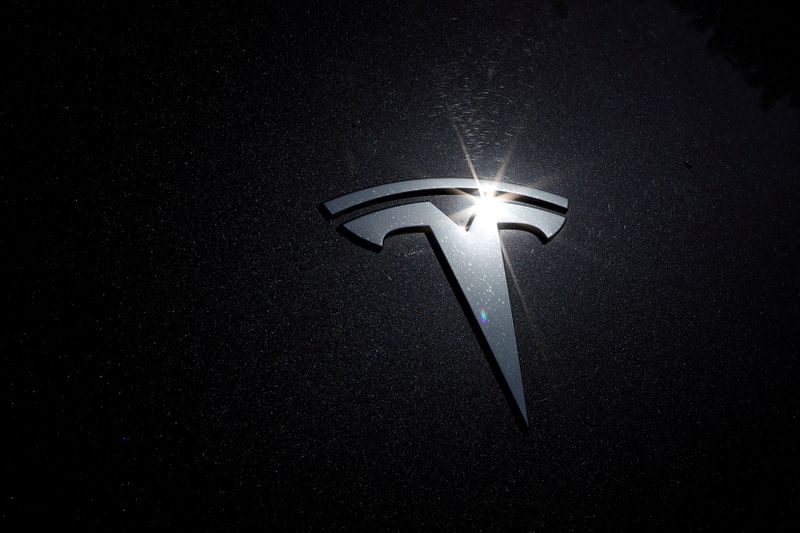By Hyunjoo Jin and Yilei Sun
SEOUL/SHANGHAI (Reuters) - Shares of Asian battery suppliers fell on Wednesday after Tesla Inc (O:TSLA) outlined a plan to halve the cost of its electric vehicle batteries and bring more production of the key auto component in-house.
The fortunes of battery makers in South Korea, Japan and China are linked to Tesla, the EV market leader, as they supply its factories in Nevada and Shanghai.
Tesla CEO Elon Musk said on Tuesday the carmaker aims to lower electric vehicle prices to $25,000 each by producing new batteries with cheaper costs and longer range.
Musk said that it will take about three years to fully achieve this goal-- disappointing investors and wiping $50 billion off its market value -- but analysts said plans for in house production would put pressure on suppliers to lower prices.
"Tesla will have more power in negotiating prices and therefore overall battery costs will fall further," said Rho Woo-ho, an analyst at Meritz Securities.
Shares in South Korea's LG Chem (KS:051910) finished 1.4% lower after falling as much as 5.5% while Panasonic (T:6752) ended down 3.7% and China's CATL (SZ:300750) was down 1.7%.
A Panasonic spokeswoman said the company is "considering a variety of options" when asked if Panasonic would partner with Tesla on new cell production, but added that nothing has been determined at this time.
"We value our relationship with Tesla and look forward to enhancing our partnership," the company said.
LG Chem declined to comment. A source familiar with the company said it is open to cooperating with Tesla on the new batteries.
CATL said in a statement it also planned research and investment in nickel rich chemistry, large cells and integrated structure, which are part of Tesla's technology development roadmap, and saw them as key factors in making electric vehicles mainstream.
'INSANELY DIFFICULT'
Tesla said it plans to achieve 100 gigawatt hours of internal battery capacity in 2022 and 3,000 gigawatt hours by 2030 -- roughly 85 times greater than the capacity of its Nevada plant by 2030.
"This 100 gigawatt hours are supplemental to what we buy from suppliers," Musk said, reiterating that Tesla will continue to use its existing cell suppliers.
Tesla currently produces batteries in partnership with Panasonic at its Nevada factory, while LG Chem and CATL supply cells to its Shanghai factory.
Tesla said it has started ramping up production of its new batteries at a pilot line near its vehicle plant in Fremont, California, but the production yield is not high.
"It is insanely difficult to scale up," Musk said at the company's closely watched "Battery Day" presentation. "There is a clear path to success but a ton of work to do," he said.
Experts had mixed responses over whether Tesla will be able to live up to its aim of mass producing the bigger new batteries.
"Tesla's new batteries are possible at lab levels, but mass production is impossible," said Cho Jae-phil, a professor at Ulsan National Institute of Science and Technology who worked previously at Korean battery maker, Samsung (KS:005930) SDI (KS:006400).
However, South Korean battery expert and professor Park Chul-wan was more optimistic.

"Once Tesla succeeds in mass-producing the new cells, other battery vendors will find it difficult to catch up. It will be difficult to imitate the technology," he said.